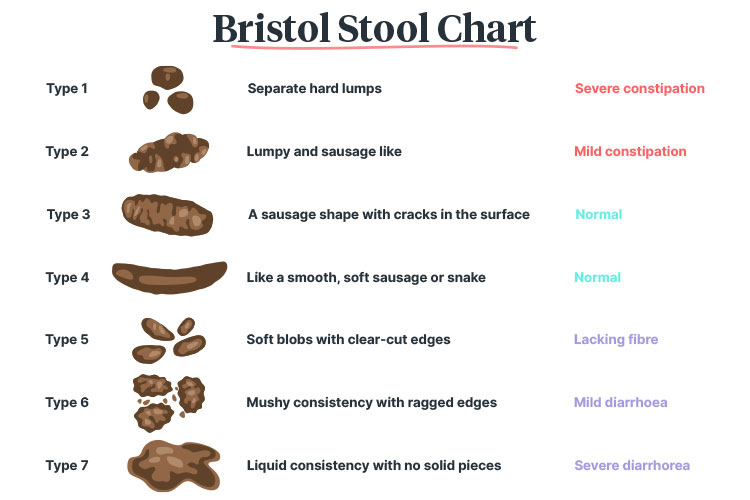Introduction
In today's globe, where medical care is advancing quickly, the importance of specialized training in complex bowel comprehensive bowel care management care can not be overemphasized. Individuals living with stomas or various other bowel-related problems commonly call for customized assistance and monitoring techniques. The arrival of programs like NDIS complex bowel care training has actually confirmed essential in furnishing caregivers with the abilities they need to give efficient care. This article will certainly look into different aspects of complex bowel care, highlighting just how targeted training boosts self-confidence and capability amongst caregivers.
What Is Intricate Digestive tract Care?
Complex bowel treatment incorporates a series of methods focused on managing conditions that affect the bowel. This includes taking care of people with stomas, guaranteeing correct hygiene, and implementing nutritional modifications. Comprehending the complexities of bowel care management is crucial for those who provide assistance to individuals with intricate needs.
Why Is Specialized Training Necessary?
Providing suitable care needs a thorough understanding of clinical problems, procedures, and emotional support techniques. Specialized training prepares caregivers to manage emergency situations, handle problems properly, and make sure that people receive the best possible quality of life.
Understanding Stomas: What Is a Stoma?
A stoma is a surgically produced opening on the abdominal area that permits waste to exit the body when regular digestive tract function is jeopardized. It can arise from various clinical conditions such as cancer cells, inflammatory bowel disease (IBD), or traumatic injury.
What Is an Ostomy?
An ostomy refers to the surgery that creates a stoma. Ostomies are often categorized right into three kinds:
- Colostomy: Entails diverting part of the colon to an exterior pouch. Ileostomy: Entails drawing away the ileum (the tail end of the tiny intestine). Urostomy: Promotes pee drainage when bladder feature is impaired.
The Significance of Stoma Care Training for Carers
Effective stoma care training outfits caretakers with expertise concerning preserving tidiness, preventing skin irritation, and recognizing signs of infection or complications.
Key Aspects Covered in Stoma Care Training
Hygiene Practices- Proper cleansing techniques Preventive actions for skin health
- Selecting the appropriate pouching system Changing bags without discomfort
- Dietary factors to consider post-surgery Managing gas and smell concerns
- Understanding client anxiety Facilitating open communication
Exploring Complex Bowel Care Courses
A structured program on complex bowel care covers both theoretical expertise and sensible skills vital for reliable caregiving.
Components of a Comprehensive Complex Bowel Care Course
- Understanding gastrointestinal anatomy Recognizing signs and symptoms of complications Practical demonstrations on pouch changes Role-playing circumstances for boosting communication skills
NDIS Complex Bowel Care Training Overview
The National Disability Insurance policy System (NDIS) provides funding for people calling for ongoing assistance due to handicaps, consisting of those pertaining to complicated bowel needs.
Benefits of NDIS Funding for Bowel Treatment Training
- Financial support for caretakers looking for professional development. Access to recognized training courses tailored to details needs. Enhanced understanding leads to enhanced individual outcomes.
Building Confidence in Complex Bowel Care Via Targeted Training
Confidence in caregiving originates from extensive education and practical experience. By taking part in targeted training programs like those provided via NDIS, caregivers can improve their skills significantly.


How Does Targeted Training Boost Confidence?
Knowledge Acquisition- Understanding medical terms associated with bowels aids interaction with healthcare providers.
- Hands-on experience enhances self-assurance when carrying out tasks such as transforming ostomy bags.
- Learning just how to manage stress and anxiety throughout emergencies enhances psychological resilience.
Bowel Treatment Administration Techniques
Effective monitoring entails not only technological abilities yet additionally recurring analysis and modification based upon private patient needs.
Key Methods Utilized in Digestive Tract Treatment Management
Regular analyses of stoma condition. Dietary alterations based on individual tolerance. Collaborating with medical care specialists for alternative approaches.Challenges Dealt with by Caregivers in Complex Digestive Tract Care
Caring for individuals with complex bowel requires presents distinct difficulties that require mindful navigation.
Common Difficulties Come across by Carers
- Emotional stress and anxiety because of patient dependency Difficulty accessing sufficient sources or information Navigating insurance or financing complexities
FAQs
1. What is ostomy care?
Ostomy care involves handling an ostomy website by making sure sanitation, protecting against skin inflammation, and checking wellness modifications related to it.
2. Why is digestive tract treatment important?
Proper bowel treatment is important for keeping health, avoiding infections, and guaranteeing convenience for people coping with conditions impacting their bowels.
3. How can I come to be accredited in intricate bowel care?
You can register in accredited programs concentrating on complex bowel management through establishments acknowledged by NDIS or appropriate medical care authorities.
4. What ought to I include in my stoma care toolkit?
Your toolkit should contain glue eliminators, protective creams, pouches compatible with your client's stoma kind, disposal bags, and educational materials.
5. How do I attend to diet plan worries after ostomy surgery?
Consultation with a dietitian concentrated on ostomy nutrition can help customize dietary strategies that match specific preferences while addressing digestive system changes post-surgery.
6. Can I obtain economic support for attending digestive tract care courses?
Yes! If you are eligible under NDIS or various other governmental programs, you may obtain monetary support covering training course costs connected to complex bowel care training.
Conclusion
Building confidence in complex bowel care with targeted training is an important action towards improving the quality of life for those requiring specific support as a result of their conditions. With versatile education focused on practical skills, emotional knowledge, and continuous assessment strategies-- a caregiver becomes better geared up not simply technically but likewise psychologically prepared to face difficulties head-on while giving caring assistance to their patients.
This post works as a thorough overview created not just for potential trainees discovering instructional opportunities however also seasoned caregivers looking for ways to refine their existing methods within this crucial facet of healthcare.